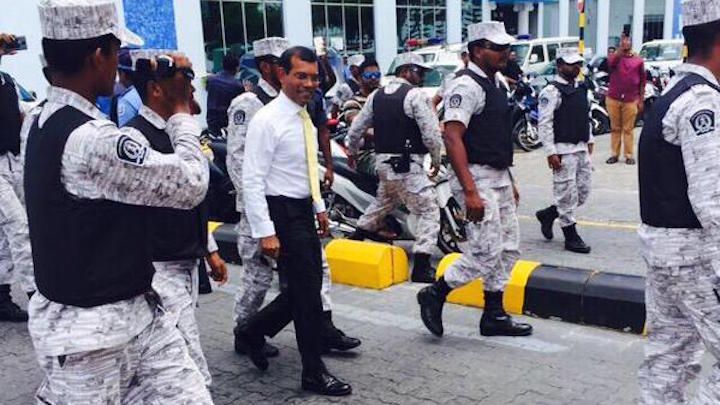Nasheed to travel to UK for surgery
Jailed former President Mohamed Nasheed has been granted leave to travel to the United Kingdom for a surgery on his spine, the ministry of foreign affairs has announced in a tweet.

16 Jan 2016, 09:00
The Maldives government has authorised jailed former President Mohamed Nasheed leave to travel to the United Kingdom for a surgery on his spine, according to a tweet by the ministry of foreign affairs.
The announcement is a reversal of the government’s earlier stance, and come just hours before the UK Minister of State at the Foreign and Commonwealth Office Hugo Swire’s arrival in Malé for an official visit.
Nasheed “was granted permission under the condition to serve the remainder of the sentence upon return to the Maldives after surgery,” the foreign ministry has said in a brief statement.
Become a member
Get full access to our archive and personalise your experience.
Already a member?
Discussion
No comments yet. Be the first to share your thoughts!
No comments yet. Be the first to join the conversation!
Join the Conversation
Sign in to share your thoughts under an alias and take part in the discussion. Independent journalism thrives on open, respectful debate — your voice matters.




